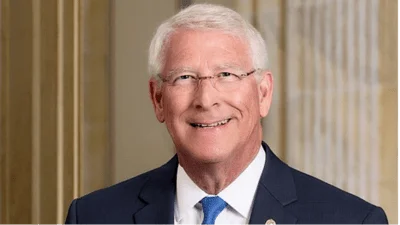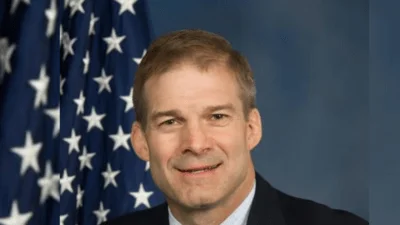Congresswoman Betty McCollum (D-MN), Chair of the Interior, Environment, and Related Agencies Appropriations Subcommittee, delivered the following remarks at the Subcommittee's markup of its fiscal year 2020 bill:
This meeting of the Subcommittee on Interior, Environment, and Related Agencies is called to order.
Good afternoon, today we will consider the fiscal year 2020 Interior, Environment and Related Agencies bill.
I want to thank the chair of the full committee, Mrs. Lowey, for her leadership in putting forward a full slate of allocations in the beginning of this process, which has helped us make informed decisions in the bill before us today.
This bill rejects cuts proposed by the Trump Administration, including those that would have harmed the ability of the EPA to keep our communities safe and healthy. The President’s budget defunded the Land and Water Conservation Fund, and decimated scientific research to combat climate change. Instead, we are choosing to make important investments to protect the air we breathe and the water we drink.
We are prioritizing our federal trust and treaty responsibilities to provide for the health, safety, and education of our Native American brothers and sisters.
For fiscal year 2020, the Subcommittee is recommending a total of $37.3 billion in discretionary funding. This is an increase of $1.7 billion over last year’s enacted level. There is also an additional $2.25 billion in fire cap adjusted funds for suppression operations. These critical funds allow the Forest Service to fight wildland fire without borrowing from non-fire programs.
This Interior bill is the product of hard work and collaboration. The Subcommittee held a total of sixteen hearings, including two days of American Indian and Alaska Native public witness hearings, a non-tribal public witness day, and a Member Day.
In total, 123 individuals - representing the Executive Branch, Congress, State, Tribal, and Local governments, and the general public - testified before the subcommittee. We received nearly 6,500 requests from Members of Congress and we worked hard to create a bill that reflects the priorities of the entire House. I am pleased to report that we fulfilled -either in total or in part - more than 93 percent of those requests.
This bill continues our subcommittee’s non-partisan approach to addressing issues facing our Native American brothers and sisters. I am committed to honoring our trust and treaty obligations, and I am proud that this bill continues to move us in the right direction. In fact, the bill invests over $10 billion to support and strengthen Indian tribal self-determination, including $1 billion - the highest funding ever recommended - for the operation of Native education programs.
This bill also provides funding to protect and preserve our landscapes and biodiversity, providing increases of:
* $63 million for Fish and Wildlife Service Ecological Services and National Wildlife Refuges;
* $29 million for Tribal Natural Resources programs; and,
* a total of $45 million for our National Monuments.
Additionally, a total of $524 million is provided for the Land and Water Conservation Fund, which was permanently reauthorized earlier this year. We have included $244 million for the federal program and $280 million for the state and local program. As part of LWCF, the Forest Legacy program will receive $75 million and the American Battlefield program will receive $15 million, both increases over the enacted level.
Ensuring that all Americans have safe drinking water is a top priority of this bill. We fully fund the Drinking Water State Revolving Fund at the authorized level of $1.3 billion, and provide an additional $231 million to address targeted drinking water and wastewater needs.
This includes addressing lead in drinking water, and ensuring that all Americans have access to drinking water which meets minimum health standards. It also reduces sewer overflows that can contaminate sources of drinking water.
The bill also provides $18 million in new funding to EPA to establish drinking water standards for PFAS chemicals and to create Superfund clean-up standards. These chemicals are persistent in the environment and our bodies and we are directing USGS and EPA to work together to understand and address the contamination of our drinking water supplies. The bill also increases funding for the National Institute of Environmental Health Sciences and the Agency for Toxic Substances and Disease Registry by $6 million to support EPA’s research needs.
Finally, this bill shows that we are serious about addressing climate change and taking on polluters. Our funding increases recognize the importance of science to understand and address the impacts of climate change on our natural and cultural resources, ecosystems, and human health. The bill boosts funding for climate change research, greenhouse gas emissions tracking and reporting, and energy and water efficiency programs at EPA. It increases Ecosystem and climate related funding in the US Geological Survey, and restores programs proposed for elimination in the Fish and Wildlife Service.
The bill provides $12 million for Energizing Insular Communities to reduce the insular areas' reliance and expenditures on imported fuels, develop domestic energy sources, and improve the performance of energy infrastructure.
The bill makes numerous investments in the health of our communities and our environment, including
* An additional $40 million for compliance and enforcement activities at EPA;
* $15 million for Tribal Resiliency programs;
* an additional $10 million for Forest Service research and development critical to forest health, particularly with respect to climate change and watershed improvement; and
* A 47 percent increase for Environmental Justice funding at EPA, to assist state and local partners
in better incorporating environmental justice considerations into decision making.
I am exceptionally proud of the work that this Subcommittee and our staff, on the committee and in the personal offices, has done to produce this bill. I thank all of you for your engagement and commitment. We know that we will have additional work to do in negotiating with our Senate colleagues and this Administration.
However, the White House indicated that it is not likely to negotiate a budget deal until the fall. My colleagues on this Committee understand all too well that we simply cannot afford to wait that long. We shouldn’t let inaction by another branch of government stop us from moving forward a good bill for the American people. And this is a good bill. It makes important investments in the health of our communities and our environment, and I urge my colleagues to support it.
Now, let me turn to my colleague, the ranking member from Ohio, for any opening remarks he would like to make. Mr. Joyce.
Source: U.S. Department of HCA









